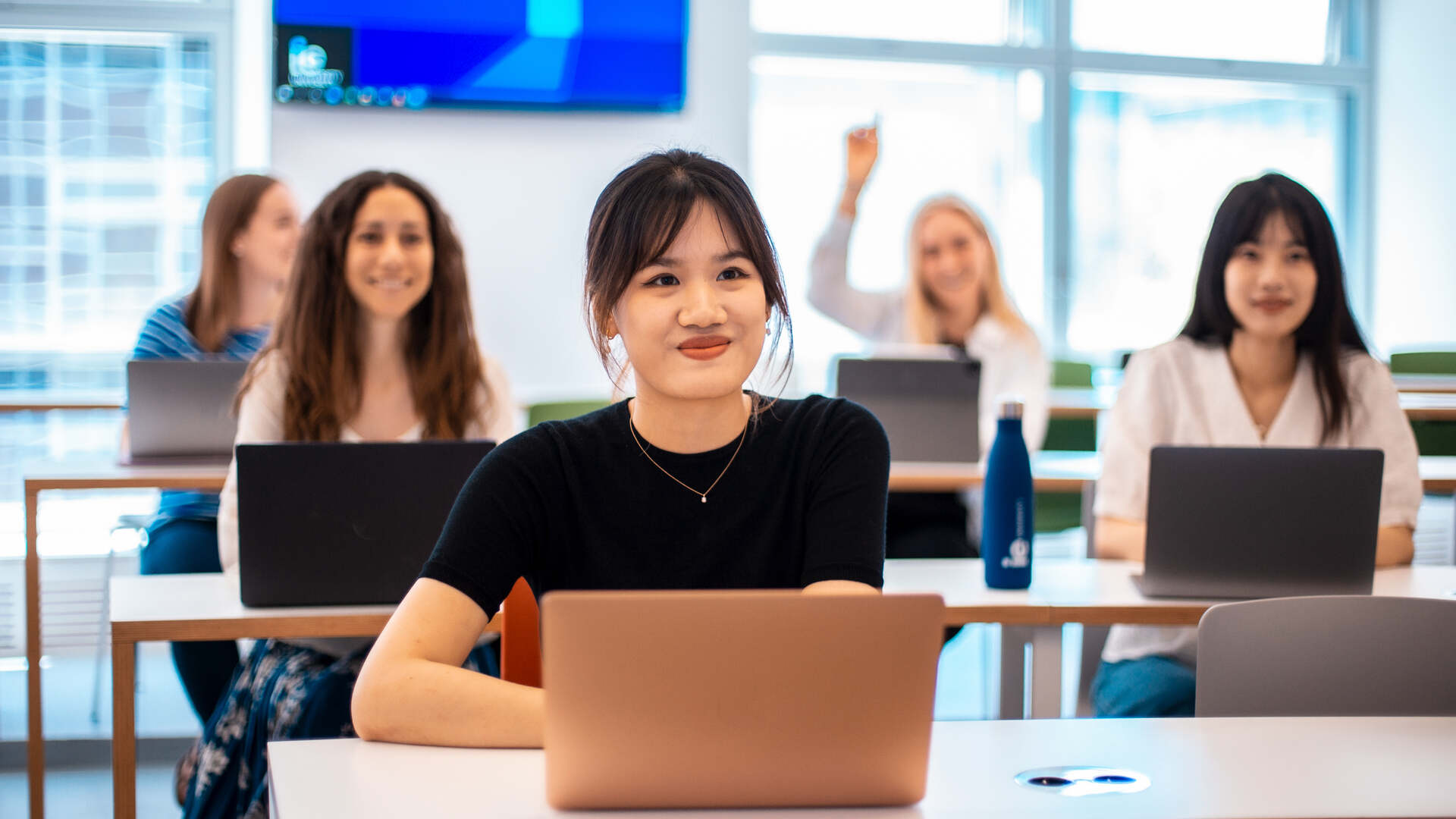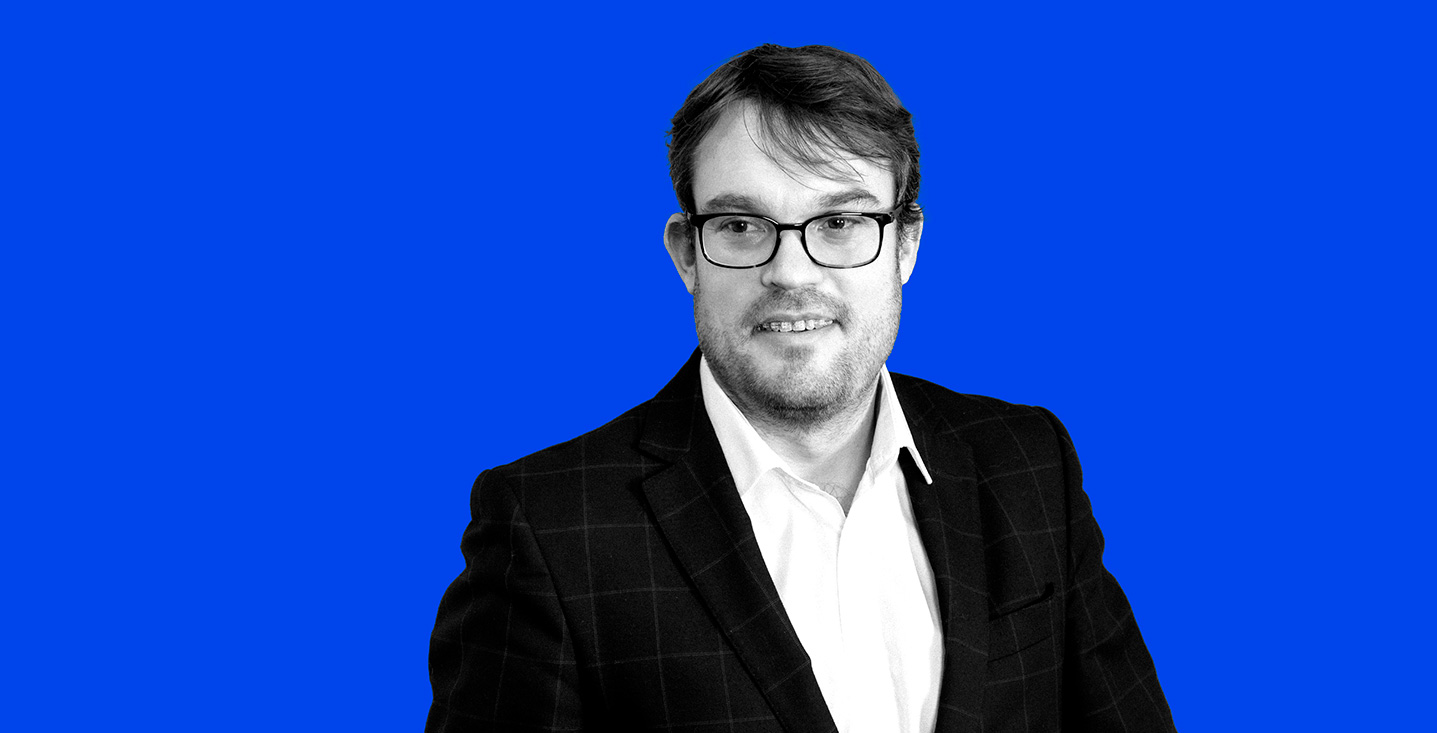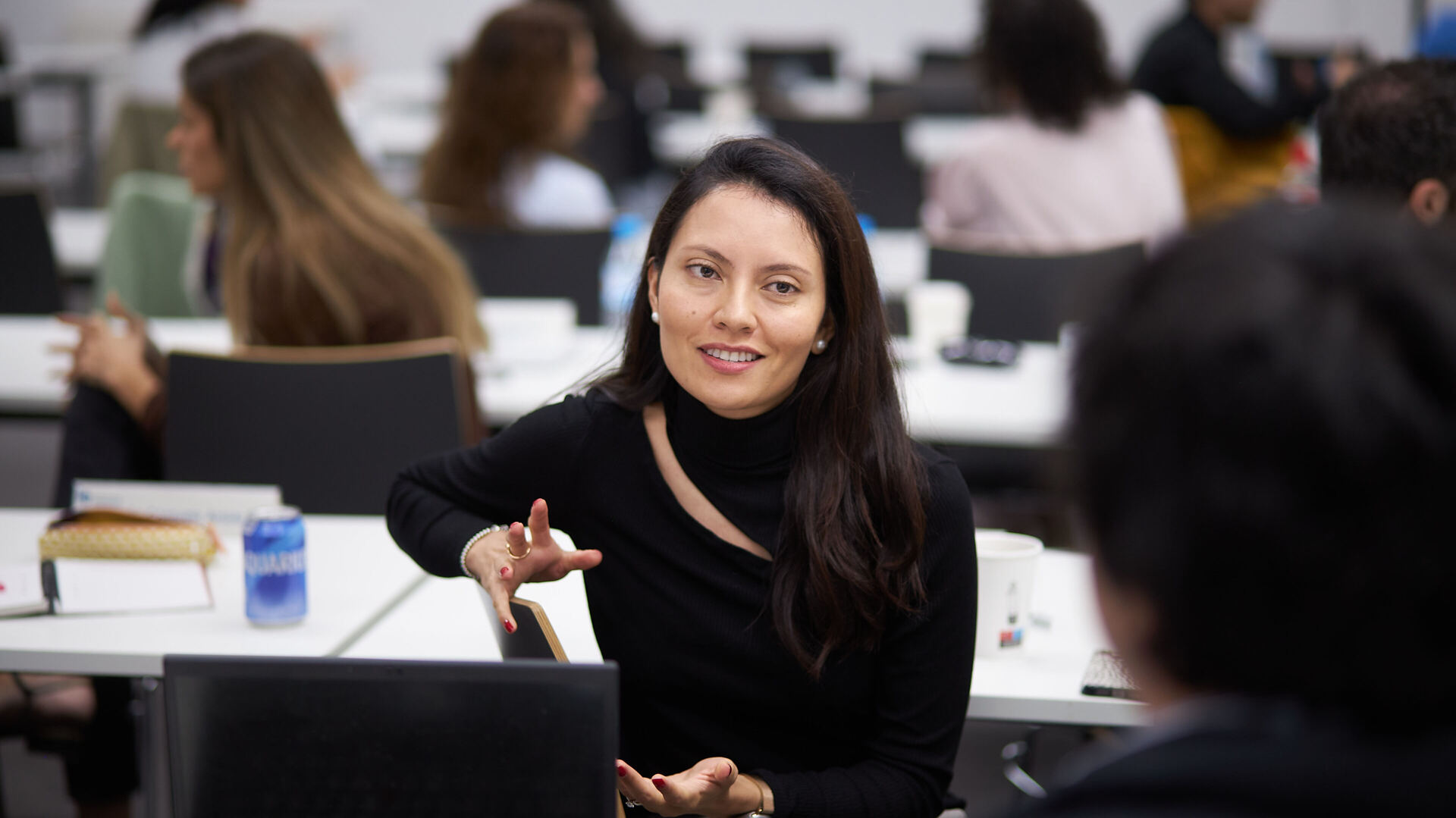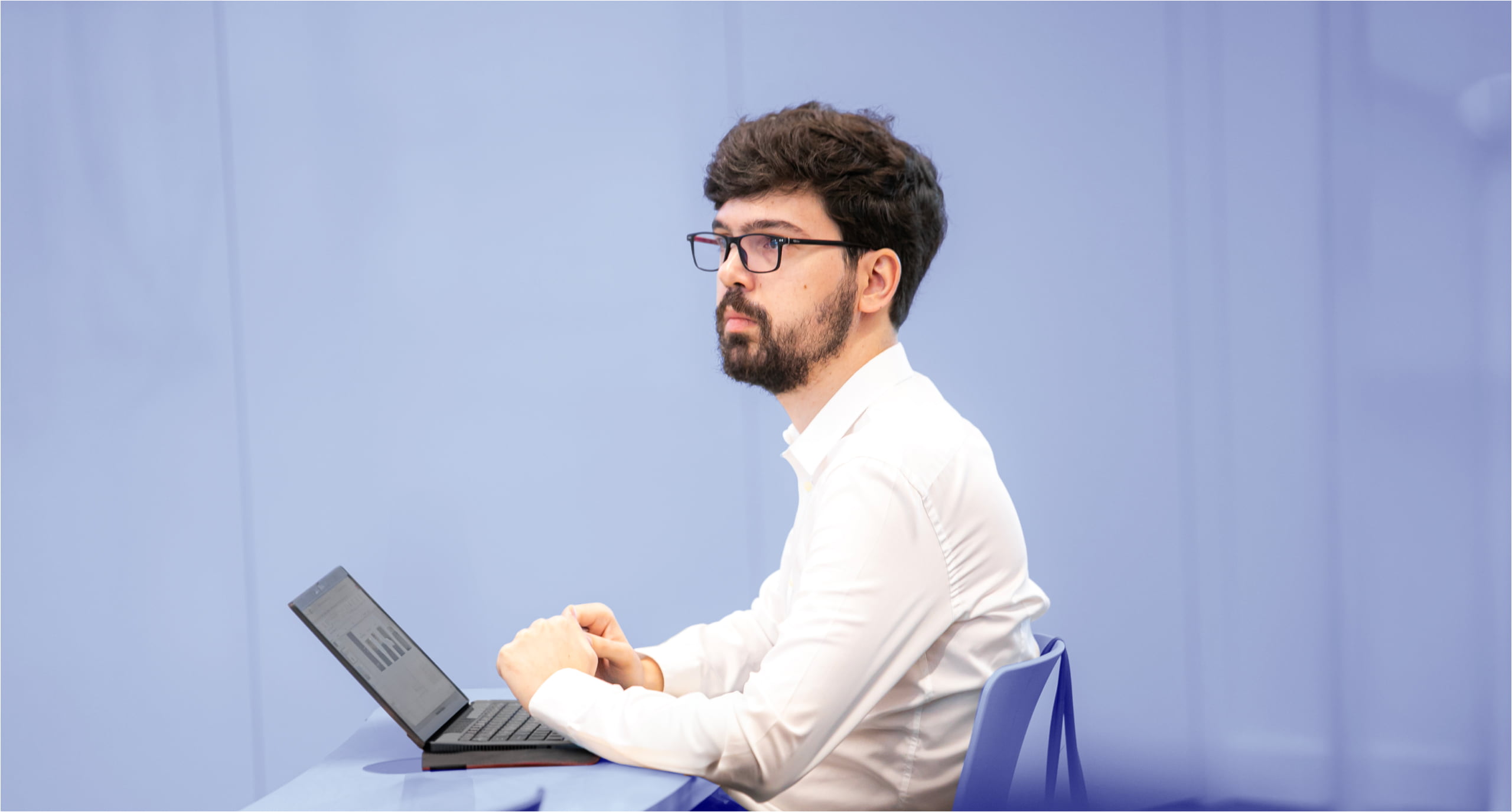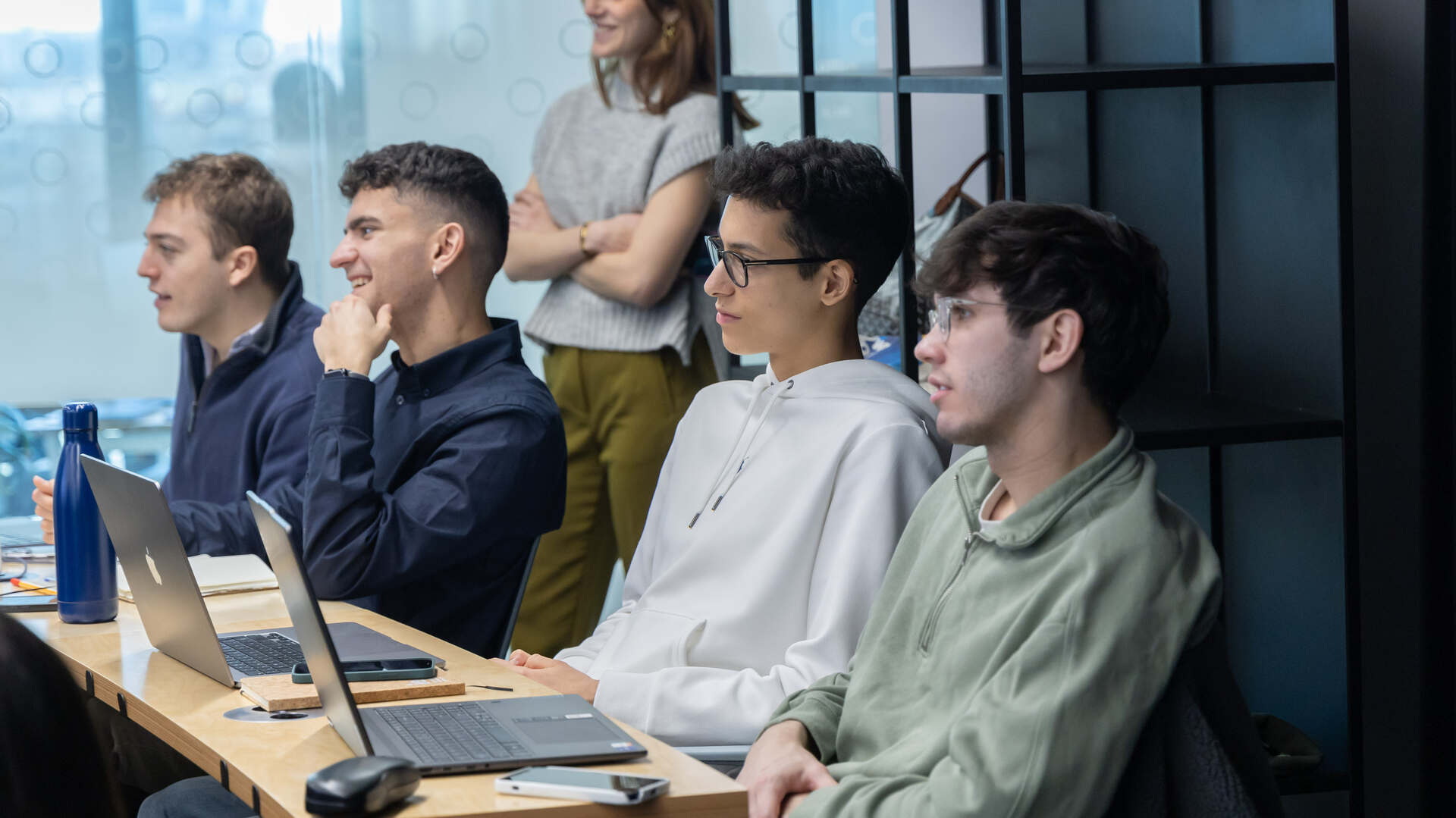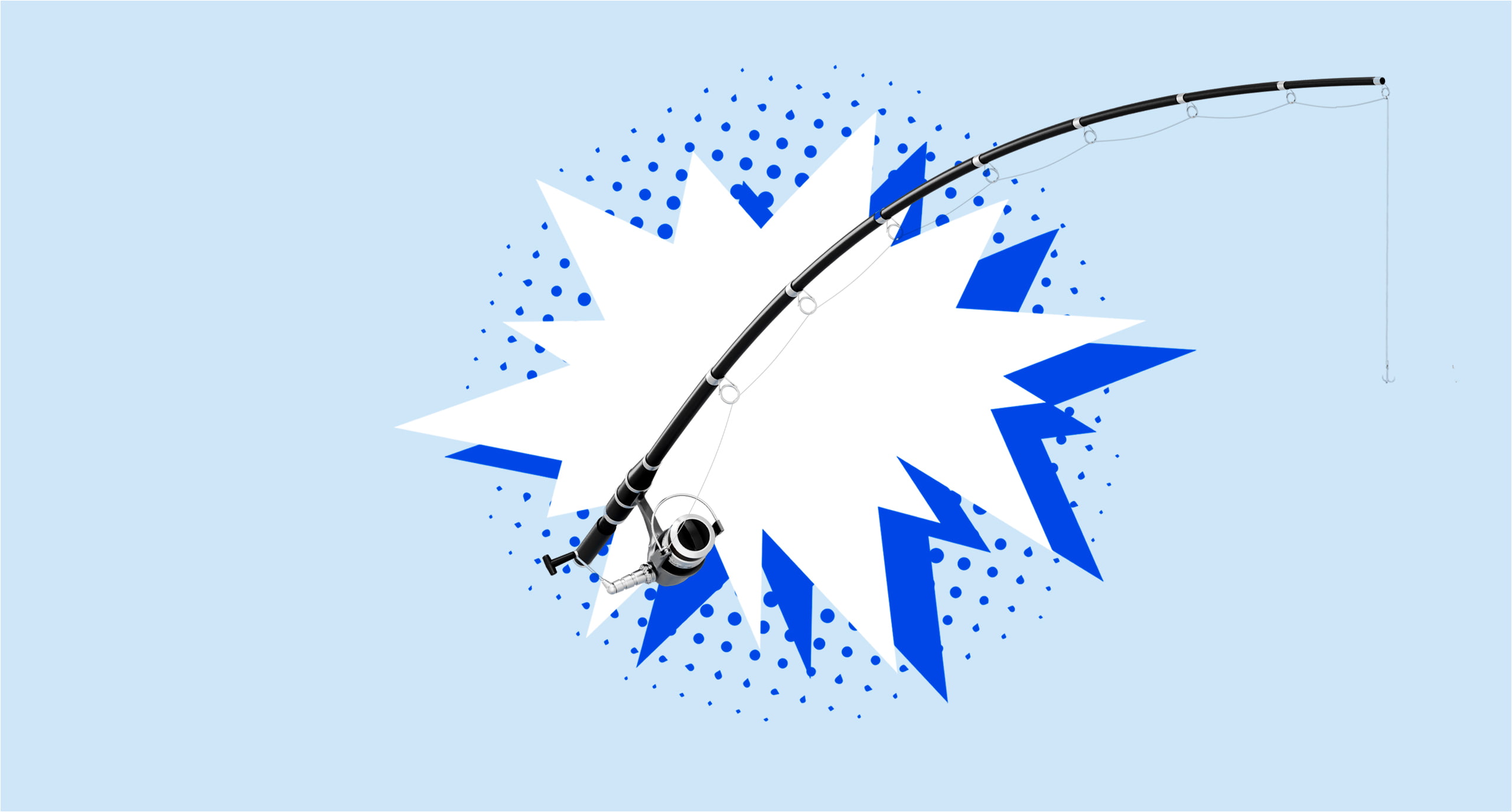14/04/2025
Sophie Sutherland knew that she wanted to break into the realm of virtual and augmented reality, but she needed a bridge from her biomedicine bachelor’s degree.
Interested in the Master in Digital Business & Innovation? Read up on insights from Sophie Sutherland, a graduate of the class of 2022 whose studies in biomedicine provided the perfect platform to blend business and science into one career.
You have a diverse academic background. Can you tell us a little bit about that?
“I studied liberal arts and sciences before, which is a program where you can do a bit of everything. I majored in biomedicine, but I also took courses on several different things, for example, video games and game theory, as well as literature. It was a very broad range of topics.
“I actually told my parents I would never study business. So it’s quite ironic that I chose this master’s program. But digital business and innovation just sounded very different to me and I wanted to get into the field of virtual reality and augmented reality. It’s a very difficult field to get into, especially with my academic background which had no subjects related to digital business. When I saw this program, I knew it was what I needed to start my journey.”
Was there something specific that brought you to IE Business School?
“I’d actually been accepted into another master’s program at a different university, but I really wanted a more international feeling. I was in Barcelona at the time, so I first looked for universities there because I loved the city, but there was nothing. Then my mom brought up IE Business School because two of her best friends have kids studying there. So, I took a look online, saw the Master in Digital Business & Innovation and applied that same day.”
Did you complete any internships in business & science that you could tell us about?
“Yes, I completed an internship for VR Days Europe. We had a conference in Rotterdam called Immersive Tech Week from November 28 to December 2 in 2023. It’s a massive conference for people in XR (extended reality), metaverse and blockchain. It’s a trade show and a conference program, and we had around 5,000 visitors. It was big! There was also an XR association from Spain that came and collaborated with us on quite a few things, which was a nice connection.”
What else did you do in your internship?
“I was a speaker liaison, which meant I handled all the program speakers—we had more than 250. I also got to handle some of the conference sessions that we had. It was basically putting the speakers in the right places and creating a few sessions. It was fun.”
In what way has studying the Master in Digital Business & Innovation prepared you for a career?
“It really allowed me to do a career pivot. With what I was studying before, I was either going to work in a laboratory or be a doctor, and I didn’t want to do either of those things. This program really allowed me to change without having to redo a bachelor’s—I wasn’t prepared to keep studying for that long. Now I can apply what I learned with biomedicine to technology, which is a very valuable combination.”
Has your perspective of the business world changed since completing this program?
“Yes, it’s now a world I can see myself getting into. It also helped me see what type of company I wouldn’t want to work at, which I think is valuable to learn, as well. One of my favorite parts of the program was having such a wide range of courses. We learned everything from programming to creating business plans to how you can resolve office conflicts and fire someone.
“The program opened my eyes to different opportunities in the business world. All I thought of before were older men in suits just kind of shouting at each other—that was my perception of the business world. So that’s very drastically changed. Now I see it as more diverse, and there are so many different job opportunities. I don’t have to see it as business—it’s more that business is in everything, and I just need to find out exactly where I want to put myself.”
Was there a particular course that really stood out as valuable?
“I remember a particular teacher, Manuel Lopez, more than any specific course because I learned the most from him. We looked into business models, which is something I had no experience with. We also immediately got to apply what we studied in our own way. We gained practical experience, which was good because in some courses you’re taught something but don’t really apply it anywhere, so you don’t know what to do with the information.
“I also really loved the programming courses. I’d only done one at my past university and that went horribly, so I was very nervous about it because I thought there was no way I could do it, but the teachers we had were great. I just immediately understood everything, and that was fantastic.”
What was your Capstone Project about?
“The idea came to me when a friend and I went grocery shopping. We both bought a bunch of ingredients for soup, and we just didn’t know what to do with the leftovers. We spent two weeks laughing because we had so many leftovers in our fridge. Eventually they started going moldy, so we had to throw them out. Then we thought—what if you had an app that creates a meal plan based on the ingredients that you already have? We know that similar things already exist, but there are many different variations that you can play off of. This app can also give you an automated grocery list for what you’re missing, and we can couple it with online ordering apps so you have a meal plan and everything you need. We called it Meal.ly.”
Now that you’ve graduated, what tips would you give to current students in the Master in Digital Business & Innovation?
“Keep good notes because you’ll need them, and you’ll be grateful for them when you have interviews, for example. Make as many connections as you can. That’s one of IE Business School’s main benefits—you meet so many people from diverse backgrounds who are going into all these fields, so you’re pretty much guaranteed to know someone in a field you want to work in.
“Participating in some extracurriculars is always a good idea. I did Venture Lab and am very happy I did so because I learned a lot, and I even managed to get to pitching day with no previous business experience. My co-founder didn’t have any business experience either, so we just threw ourselves into it. It went well, and we are thinking of continuing with our idea now.”
What words of encouragement would you tell someone who’s interested in business science and this particular program?
“Don’t feel too intimidated by the name of the program. The program works with you to create the right path. It’s a new program that’s being tailored to everything that’s currently happening. Our courses changed based on events that were happening at the time, which is what makes it so fun. It’s a bit new for everyone, so you really don’t have to feel like you’re behind on anything if you haven’t done something like this before.”


